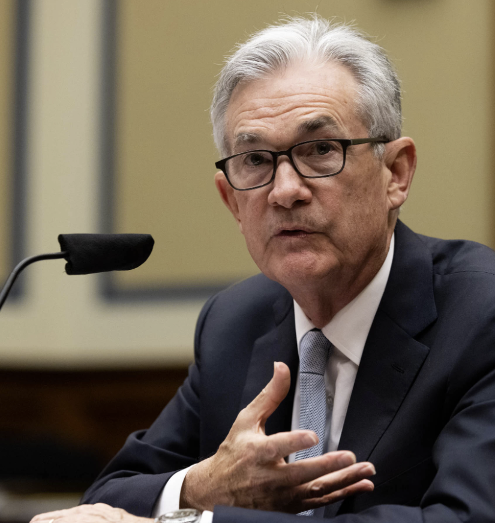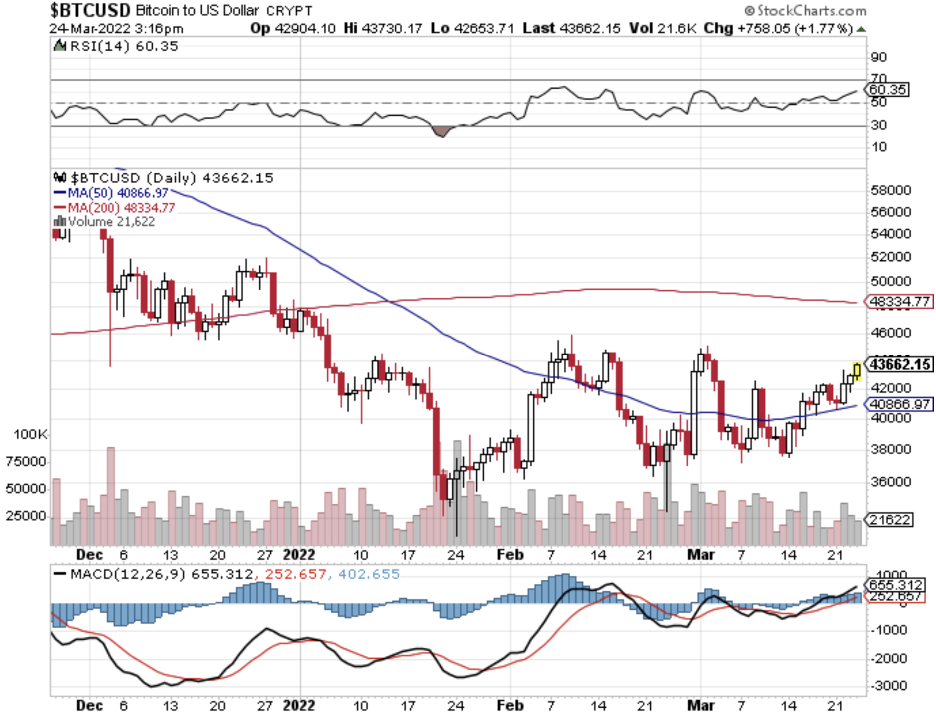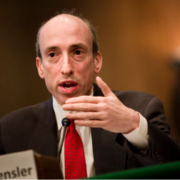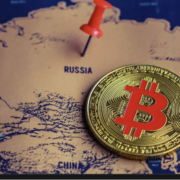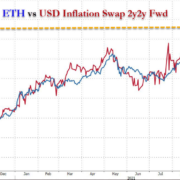Kick the Crypto Can Down the Road
Federal Reserve Chairman Jerome Powell on Wednesday said digital innovation in the financial sector is here to stay and with it, a raft of new regulations will need to be created.
It’s interesting that he delves into the matters of cryptocurrency so succinctly when one might really question if he has a grasp on the current fiat monetary policy in the United States.
Many have also gone on record saying that he has committed a vast policy error by allowing inflation to run too high for too long.
There are elements that are true to this and observing his overly cautious stance to raising interest rates makes me deduce that he most likely will bring the same type of attitude to Bitcoin and cryptocurrency.
I agree that new regulations need to be created and the lack of them is holding cryptocurrency back, but at least Powell didn’t take the hostile route which he easily could have with nobody batting an eye if he turned more conversative to the technology of money.
Powell described cryptocurrency as a “novel technology like distributed ledger and decentralized finance which has the potential to improve the efficiency of the payment system and encourage a more competitive financial landscape.”
When I hear Powell say the word “novel,” it basically means that nothing of substance will take place in the near-term future because he is too experienced to deal with an emerging asset class that could potentially ruin his legacy at the Federal Reserve.
He could have even said that cryptocurrency is “exotic” and still gotten away with it.
Every Central Bank governor wouldn’t mind a more “efficient” and “competitive” financial system and fortunately, the American financial system is still the gold standard of the world even if the gatekeepers of the Central Bank currently aren’t performing up to snuff.
Powell also divulged that the Fed will likely collaborate with other central banks on other areas of crypto and financial innovation, including stable coins.
A stable coin is a cryptocurrency pegged to a reserve asset like a fiat currency, commodity, or other cryptocurrencies. It is a tokenized version of the asset and can be introduced subtly into a blockchain ecosystem to facilitate seamless pass transactions, improved arbitrage, and value exchange.
It is sometimes referred to as a utility token because it allows you to quickly buy and sell on decentralized exchanges that do not accept fiat currencies.
Stable coins are also used in centralized exchanges. What makes them useful in an exchange of this kind is the fact that fiat currencies take a long time to process, but their tokenized counterparts are standard blockchain entities that move quickly.
Powell also dives into the need for crypto to close the “regulatory gaps” which for me means that he wants crypto to be centralized just like the US dollar wields an army of bureaucrats in the form of regulators safeguarding the American financial system.
That might rankle a few crypto diehards who are hellbent on crypto being a decentralized system and not to mention when crypto looks like a safer bet, all the Wall Street influence that will pile into the crypto ecosystem.
Ultimately, Powell’s speech was good and bad for crypto.
Acknowledging it effectively means he legitimizes it, yet he doesn’t want it to develop without parameters in which the government has zero influence.
It is yet to be seen if the federal government just kills assets like Ether and Bitcoin to create their own digital currency would be the digital version of the US dollar.
That’s a page right out of the Chinese communist party with their digital yuan.
If that happens, many investors will cry foul and would be left scrambling.
However, I don’t believe Powell has the intention to crush a whole trillion-dollar asset class that could trigger contagion throughout the whole market.
By keeping it at arms’ reach, Powell effectively gave a green light to develop parallel to the US financial system yet kicking the can down the road to whether this monster can be integrated seamlessly into the US financial system or not.
That’s the end game for the likes of Bitcoin and crypto, but that decision has been put off for the long-term giving more time to this emerging asset class to improve its foundations.
To live to breathe another day is not necessarily a bad thing in speculative markets.
THE MAN WITH GREAT POWER OVER THE FUTURE OF CRYPTO


